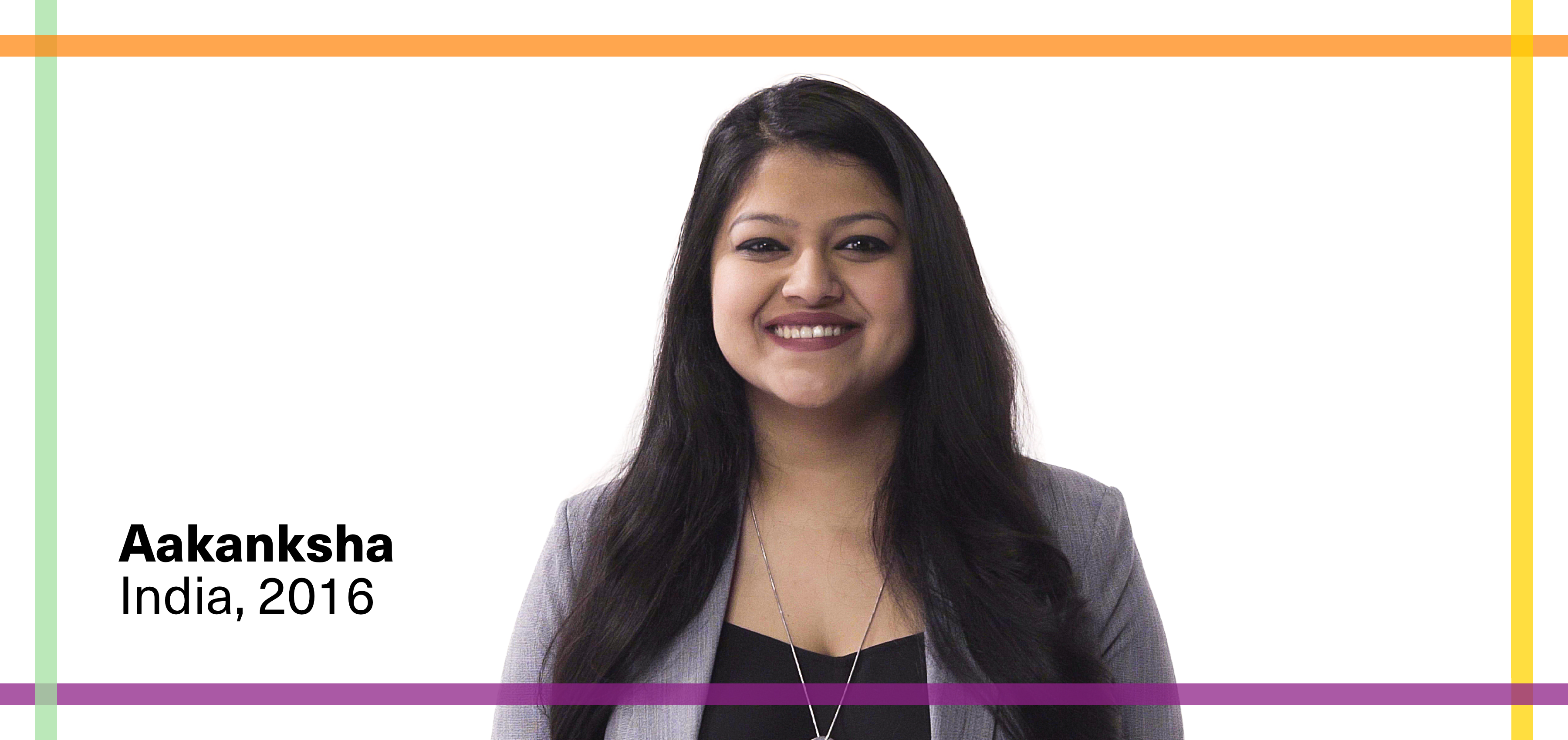From an interview with Aakanksha Jha, Senior Business Analyst, RBC.
Originally from Mumbai, India, Aakanksha came to Canada as a student in 2016. She studied at George Brown College in Toronto, where she found support in terms of job search, resume and interview preparation, and co-op search. Aakanksha secured a co-op position with RBC and turned that opportunity into a full-time job. She’s currently a Senior Business Analyst within the Incentive Compensation team at RBC. For Aakanksha, one of the key differences between Canada and other countries like India is our more balanced approach to work and life. Aakaksha’s work-life balance includes mentoring and guiding newcomers with personal insights based on her real experience living and working in Canada. She also has a culinary side to life, working as an assistant chef at a cooking school (until COVID-19). Aakanksha took time away from her busy schedule to talk to us about how work and life have changed since the pandemic. She’s baked in some key insights and tips for newcomers coming to Canada in these challenging times, along with a generous helping of optimism.
It was exciting when I arrived in Toronto four years ago. I was full of hope, everything was different, and the novelty factor was keeping me very bubbly. During my studies at George Brown College, I worked at the St. Lawrence market and at a restaurant for a while. I love cooking but had never worked in a culinary environment before. I’m so happy that in Canada, I can have a full time job as a business analyst (it will be four years this January), and still pursue something that I am really passionate about. Most recently, I was working as an assistant chef at a cooking school in the evenings. Then the COVID-19 pandemic hit, and everything changed.
Pre-COVID, I worked out of either the RBC development office in downtown Toronto or the Meadowvale office in Mississauga (about forty kilometres west of the city). I would get up early in the morning to catch the train to get into the office on time. I’ve been working from home since the middle of March, and I don’t mind it. It gives me a lot of flexibility as to how I want to structure my day.
“When I started working from home, I baked enough for a weekly bake sale. But I’ve slowed down on that front.”
My mood is generally better in the morning now because I’m not rushing and worrying about whether I’ll make it to the train on time or whether I’ll make the meeting. I can stay in my pyjamas a little longer and have my coffee. I like the quietude of the morning. When I’m getting ready for my day, I have time to think and plan and get a good lay of the land. I’ll check my calendar to get a feel for what the day holds, and then I’ll block out my day to get my work done between meetings. That helps me focus my time in the morning and sets the tone for the rest of the day.
I do miss the human interaction, just walking up to someone’s desk and chatting with them. I’d say seventy percent of my meetings were held face-to-face in a meeting room. Whereas now, my meetings are online video calls in the comfort of my condo.
Productivity is a surprising byproduct of working remotely
There’s a real spirit of collaboration on our team. We interact mostly through online group calls. We can ping everyone on the team at once or reach out individually, depending on what information we’re seeking. Some people are more responsive than others, but everybody has been so patient and so cooperative. Everyone understands that the situation is very different for each of us. There isn’t that sort of mentality of, “Oh, I’ve been looking for you, why aren’t you at your desk?”
If I’m trying to get in touch with someone and I look them up, and they’re on a break, that’s completely fine. I can drop them a message anyway, or I can just wait till they’re back online. This allows each person to be independent and still get the work done. That’s what matters. We’ve all stepped up for each other so much, and I’m so happy to see that. Everybody is encouraging each other to get some rest and take some time off (although everybody knows that you’re probably staying at home): we’re here for each other
Networking during COVID-19: challenges and opportunities
Networking has more to do with getting a sense of a place than landing a job. It contributes to your understanding of the people and the job market. With that, you can then start working on improving your profile, your cover letter and resume and your job interview skills.
Since all of this is now being done over video or phone calls, it is certainly more challenging. I am more comfortable speaking to someone over a phone call than a video call. So, it’s important to remember that I’m no longer able to read your body language because I do not see you. So I need to sense it in your voice and your messages that you’re actually serious, that you’re not wasting my time or yours.
But social distancing has presented opportunities too. People seem to be more open and have more time. We’re not commuting as often. People may be more willing to connect with more people. So that gives an opportunity to newcomers seeking that connection. Pre-COVID, if someone were to message me when I was at the office, I probably wouldn’t respond until the end of the day, and then I’d be tired, and I wouldn’t want to speak to someone at six o’clock in the evening because I’m hungry then.
But I think since we are at home now and we all sort of miss that human contact, if someone reaches out to me, I feel like I’m more likely to be more open and responsive now than I would have been in a typical workspace setup. You can read about all of this online, but connecting with a human on the other end of the phone, actually getting someone to answer your question or just guide you a little bit, even just to nudge you in the right direction, makes a huge difference. You don’t have to be in Canada to get help from someone, to connect with people and network.
Do your homework, show you are prepared, and follow up
When reaching out to someone to get help or guidance, it’s important to come across as genuine. Do your basic research. It’s simple. When somebody is making time to speak to you and try to help you out, doing your homework, and being prepared is the only way to get the best of that relationship or that connection. If I see that you have also taken some time to research and not just show up for a call or chat, then I will be more inclined as a human being to help you.
It has to be a two-way street. Especially now that we’re not meeting face-to-face and that little bit of personal touch or building that connection over phone calls has become more critical than it was.
Research the companies and the people that you’re reaching out to so that you can ask them about their experience – who doesn’t like to talk about themselves, right? You will be able to connect with the person more directly. Also, research what kind of work you want to do so that whoever you’re talking to knows that you have some direction, and you’re not just asking, “What should I do?” or “Can you get me a job?” Having these conversations gives you an advantage, because even if the person you’re connected to does not have all the answers, they may connect you with someone who does. And you know that’s how networking works. Do your research. Learn from people, ask them questions and then make the decision that fits your journey.
It’s a great opportunity to connect with people who are already here living and working and bearing witness to the way things have changed. They can give you real insight, first-hand, fresh information in terms of what’s going on, what the job market looks like and more.
Remember to follow up. Going back to someone who has provided guidance at some point and just giving them that little update or check-in goes a long way. They may have forgotten about you, or they haven’t thought of you in a long time, but then your follow up message appears, and they’re like, “Hey, you know what, I know someone looking for someone with your background.” Keeping in touch always helps, especially in these socially-distant times.
Read more about Starting a job while social distancing.




